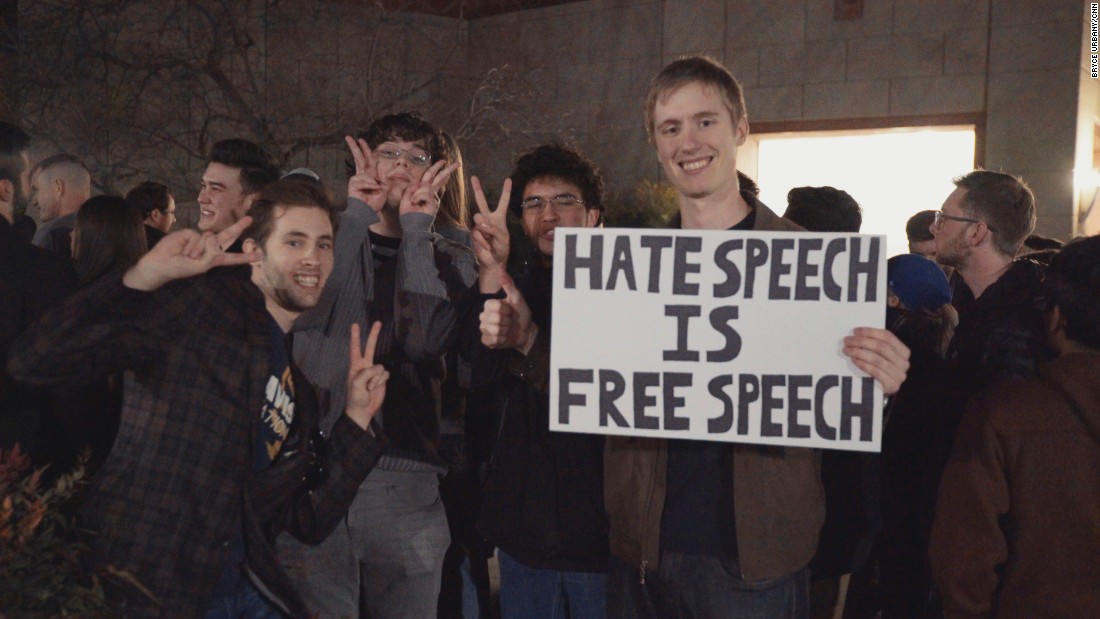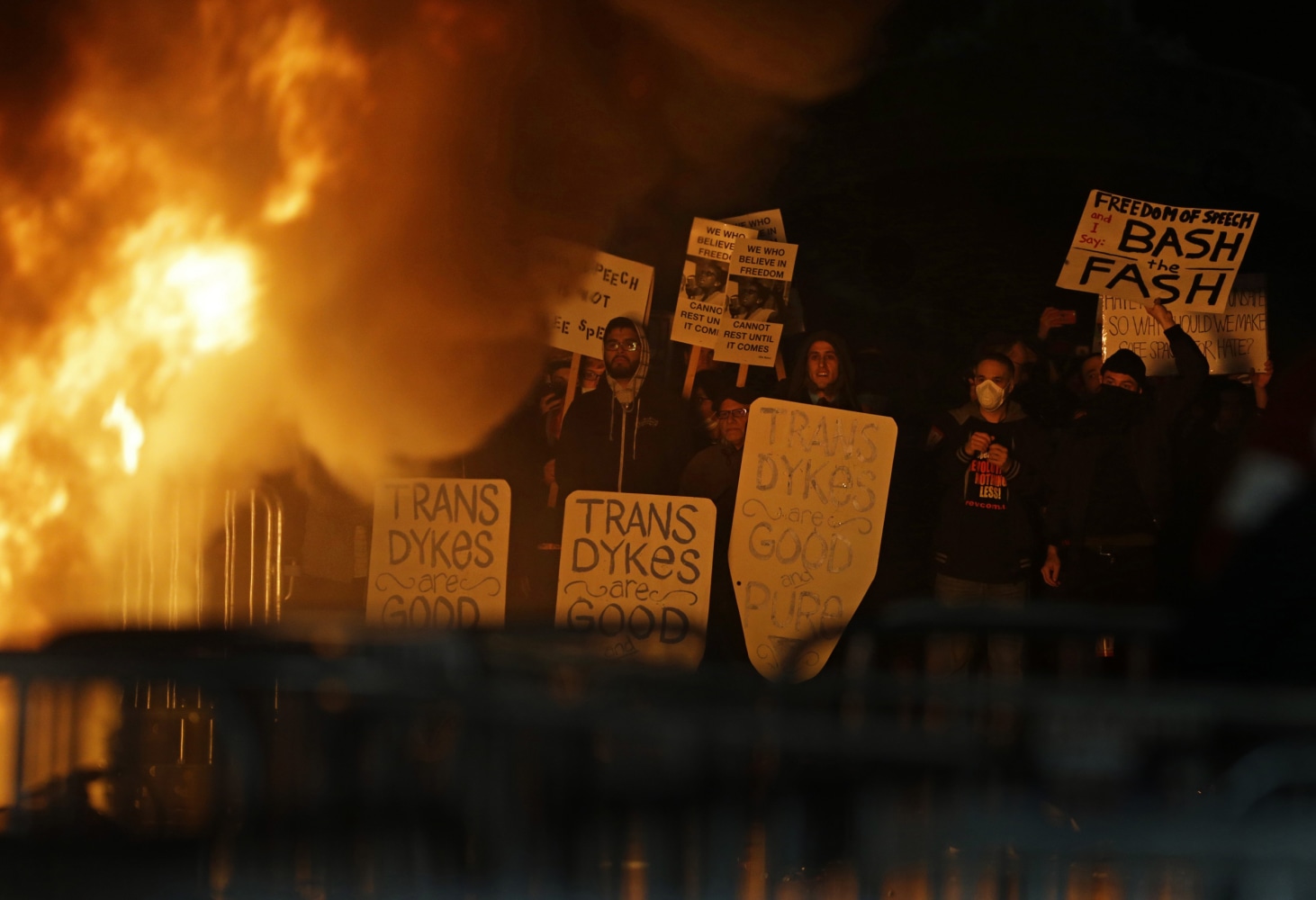In the current political state of our nation, college students are more engaged and active than ever. This demographic of young people seems to have a fiery passion for politics and genuine interest in our government system. This is quite an encouraging fact, knowing that students are invested in and care about the direction of our country. According to the article College Freshmen Are More Politically Engaged Than They Have Been In Decades, “A new survey that captures the attitudes of 2015 college freshmen shows unprecedented levels of interest in both political engagement and student activism.” The article is referencing a study done by the Higher Education Research Institute based at UCLA. The survey polled 141,189 freshmen students attending four-year colleges and universities. The results were promising. Some 9% of freshmen said there was a “very good chance” that they would participate in a student protest on campus. This number was the highest in the survey’s history. Other questions yielded similar results. Now after establishing the background for the prominence of political activism on college campuses, I am led into my next question: how should free speech be handled on college campuses? How should students and administration react to perceived “hate speech” on campus?
Freedom of speech on college campuses is a topic currently in the limelight, receiving much attention from the recent outbursts and protests at the University of California, Berkeley. On Wednesday, February 1st, alt-right political activist Milo Yiannopoulus was scheduled to speak at an event. Often referred to as a provocateur, utilizing hate speech to stir up controversy, Milo lured the anticipated response from students and teachers at the UC Berkley campus. He was originally invited by the Berkeley College Republicans, and once word spread that the booking was confirmed, teachers and students took proactive measures to prevent such a deliberation. Jose Marine Diaz, president of the student organization, argued that he was trying to open up the political discussions on college campuses. He believes that political correctness and other factors are suffocating to free expression. Jose is quoted as saying, “If it takes someone as controversial as Milo to come to Berkeley and open up the discourse, so be it.” Dan Mogulof, campus spokesman, said that the university was faced with many people in opposition to the event. He explained that they were receiving letters saying, “If the university doesn’t do the right thing, we’re going to take matters into our own hands.” However, at a public university, an extension of the government, there was not much that school officials could do. As long as a speaker does not incite violence, he or she has the right to employ hate speech and other modes of controversial rhetoric.

Teachers and students subject to the hate feared for the event as a tool for other hate groups to propagate their xenophobic and discriminatory views. On February 1st, the night of the event, these concerns were realized. People on both ends of the spectrum clashed in the streets outside of the venue. Protests were emotionally charged, as expected, but things started to get out of hand. An anarchist group by the name of “Black Bloc” incited much of the violence that eventually started to arise. These black-clad protestors wearing masks, “threw commercial-grade fireworks and rocks at police.” Windows were broken, fires were started, and altogether there was a poor display of public conduct. After more facts were released, it seems clear that the violent acts were primarily contributed by this anarchist group. University students were involved in the protests as a whole, and condemnation was generalized to all people involved. Soon after the police started to endure the physical abuse and violence, the event was cancelled.

Yiannopoulus emerged from the scene a “victim and victor.” He was able to rebuke the university and liberal protesters, arguing that “the left” stomps upon First Amendment rights and is unable to engage in civil political discussion. Trump even chimed in over Twitter, calling into question the funding of this public university. Overall, the incident resulted in some bad PR for the Democrats and furthered the debate on “safe zones” and free expression on college campuses.
The UC Berkeley chancellor Nicholas Dirks released a pragmatic and intelligent statement following the event. He said that he may not agree with the views of said provocateur, but he does defend his right to speak on campus. As a whole, the university did whatever possible to move forward with the show. The subsequent violent protest was an issue out of the school’s control. Administrators’ hands were tied, and they were left with no other choice. I agree with the aforementioned viewpoint by Chancellor Dirks. Although the hateful rhetoric is something I do not personally agree with as a mode of productive political discussion, I believe that it is a form of free speech that we cannot restrict. The response by protesters was not handled properly as well, and in hindsight, many Berkeley students do not condone what took place. I think we can all learn a lesson from this controversy at UC Berkeley. Free speech is of paramount importance in upholding the values of our nation, and resorting to violence is never a way to argue political agendas; be the bigger person and exercise some restraint.

This was such an interesting post! I really like how applicable it is to us, as college freshmen, as well. The statistics and figures you provided also really did a great job of supporting your exploration of this topic. I definitely found a lot of this post somewhat surprising as well, I’m glad that you were able to shed some light on this topic, because it was definitely something people should know more about.
I really like your focus for this post. There is such a fine line between peaceful and hateful protest, and it is interesting to consider what should be allowed on college campuses – especially for the sake of students. Additionally, I like how you mentioned that everyone was blamed as a general whole. I think this is a major reason why people have problems with protests in the first place; they adopt a persona that people generalize to everyone.
I really like the topic of this post and how college freshmen, such as us, can relate to such an issue. Your research and depiction of the events that occurred at the UC Berkley campus provide valuable insight toward a subject that is considered a controversy by many. In addition, I would have to agree with you that the students at UC Berkley stepped out of line after learning that Milo Yiannopoulus was scheduled to speak at their campus. They need to respect the 1st amendment and freedom of speech of all people, even if they don’t have the same opinions or views as the speaker.